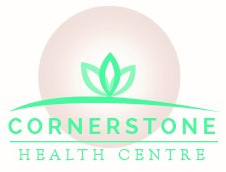Back Pain Imaging and Exercise
Spinal imaging reveals much about a Georgetown back pain and leg pain sufferers’ condition. Imaging must be carefully considered, of course, for what it shows in addition to the way various imaging methods contrast with others. Dr. Butwell welcomes all the input from you, the Georgetown back pain patient, as well as your imaging and examination testing findings to personalize your Georgetown chiropractic treatment plan for pain relief.
DISC HERNIATION AND Georgetown BACK PAIN
Disc herniation and leg and/or back pain tend to go together, too, but so much more may be incorporated: disc degeneration, ruptured annulus fibrosus, irritated and compressed nerve roots and cauda equina from the herniation itself. A recent study traced the effects of exercise on a disc herniation’s neuromechanical compression, its inflammatory chemical stimulation, and its autoimmune response. (1) Imaging shows nice pictures of the disc herniation…that Dr. Butwell associates with your symptoms!
BACK PAIN AND IMAGING
Back pain and imaging seem to go together. When someone has back pain, xrays, CTs, and MRIs come to mind. Just what do these display? A study compared images of symptomatic patients to asymptomatic persons. MR imaging of those with back pain showed that various measurements differed: anteroposterior diameter dimensions of the vertebral canal varied, transverse diameter was lesser, and thecal sac area was smaller. (2) Caution is necessary to compare neuroforaminal measurements from CT scans and plain film as a study found that in patients who didn’t have back pain plain film measurements were larger compared to those on CT. (3) Another imaging finding your Georgetown chiropractor is quite aware of is called Modic change. It’s another imaging finding that is quite revealing in that Modic change (mainly type II) is linked with abdominal aortic calcification via a lower blood supply or even poorer systemic vascularization owing to atherosclerotic disease. (4) It’s another insight we can use to determine what’s going on in your spine. Finally, a spinal imaging finding that is quite common in back pain patients is fatty infiltration of the paraspinal muscles, more so in patients with degenerative lumbar spondylolisthesis. (5) We look for that on MRI images though it’s hard to miss! Another good reason to start a good spinal exercise program!
EXERCISE & SPINE PAIN RELIEF
Exercise may be quite effective in dealing with the lumbar disc herniation which is why Dr. Butwell incorporates some simple lumbar spine exercises to begin on day one. We encourage our back pain patients to keep doing these easy exercises and are happy to support anyone who wants to do more...after we talk!
CONTACT Dr. Butwell
Listen to this PODCAST with Dr. Lee Hazen on The Back Doctors Podcast with Dr. Michael Johnson as he illustrates a case of degenerative spondylolisthesis that responded well to treatment with The Cox® Technic System of Spinal Pain Management.
Make your Georgetown chiropractic appointment today to visit us! Whether you have spinal imaging currently or need it, your Georgetown chiropractor can assist in making sense of its relevance to your path to back pain relief.

